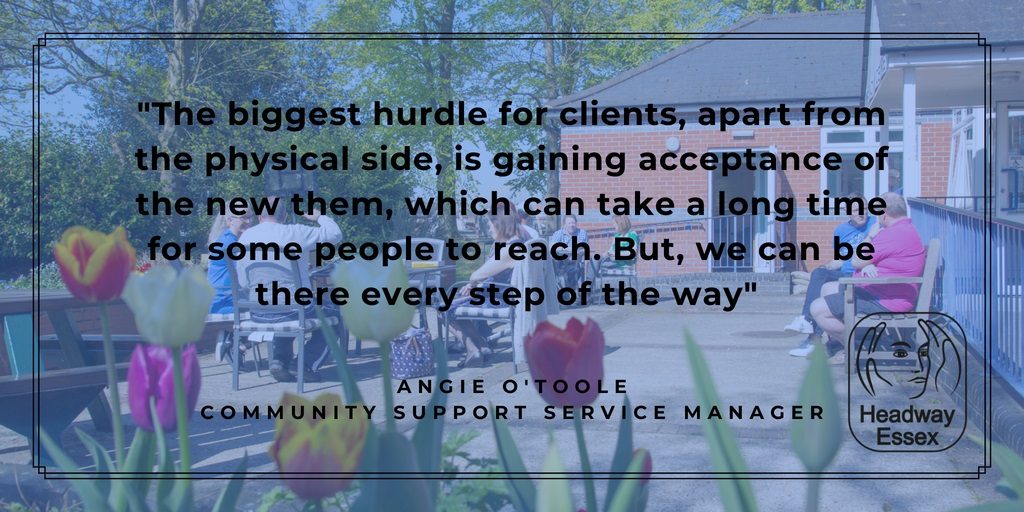
Meet the Community Support Service Manager
In an interview with the Headway Essex Community Support Service Manager, Angie O’Toole, find out exactly what Community Support do and how they help people with acquired brain injury throughout Essex.
Could you tell us about your role?
I am the Community Support Manager here at Headway Essex, which means I manage the charity’s community support function; a team of two community support workers and an office based first line support worker.
How would you describe community support?
Community support reaches out to those people in the community living with an acquired brain injury who ordinarily might not be aware such support exists. As a team, we empower those living with the effects of brain injury to become more independent.
What is a typical month like in community support?
At any given time, we’ll be supporting around 300 active clients; those who attend groups, people requiring one-to-one support and those who need to us to reach out to them regularly.
It’s always busy in community support. In the past four weeks alone, we’ve held 41 individual appointments, attended outreach sessions with various hospitals, held 8 support groups, and taken hundreds of calls. We’ve also squeezed in a car boot to raise crucial funds!
What are the common misconceptions about acquired brain injury?
People can confuse acquired brain injury with learning disability. It’s almost as if the ‘acquired’ element is not recognised. The other frustrating comment our clients hear, often by people meaning well, is “you look great, you must be back to normal now”, or words to that affect. This can be really frustrating. Because somebody looks well on the outside certainly doesn’t mean they are ok.
How does the team help clients overcome hurdles?
The biggest hurdle for clients, apart from the physical side, is gaining acceptance of the new them, which can take a long time for some people to reach. But, we can be there every step of the way. We take a very practical approach and focus on the realistic progression someone can make.
The support groups we run are brilliant. They connect likeminded people who are in similar situations to themselves and offer much needed peer support.
For carers, the challenges are very different. They quite often feel exhausted by the emotional strain of caring for somebody and may struggle with coming to terms with how a brain injury has changed a loved one. This is why we have carer only support groups in addition to our regular support groups; it’s a place where they can share their thoughts in a safe and non-judgemental environment.
What are the rewards of working in community support?
There are so many rewards. I can think of a really nice example recently, where as a team, we’ve been helping a client whose wellbeing is being negatively affected simply because they are unable to safely leave the confines of their home.
Our client is reliant on a wheelchair for mobility purposes, however they are unable to access the outside of their property due to being unable to open or close the external doors.
Community Support contacted Remap who are able to custom-make equipment to help disabled people live more independently, they are now going to make a device that will allow the client to access the rear door.
Community Support also contacted the Council regarding a disabilities grant which has now been authorised and work can now begin on replacing the front door for an electronic one, once this work is completed this will quite literally be life-changing for our client, and that makes us really proud.
